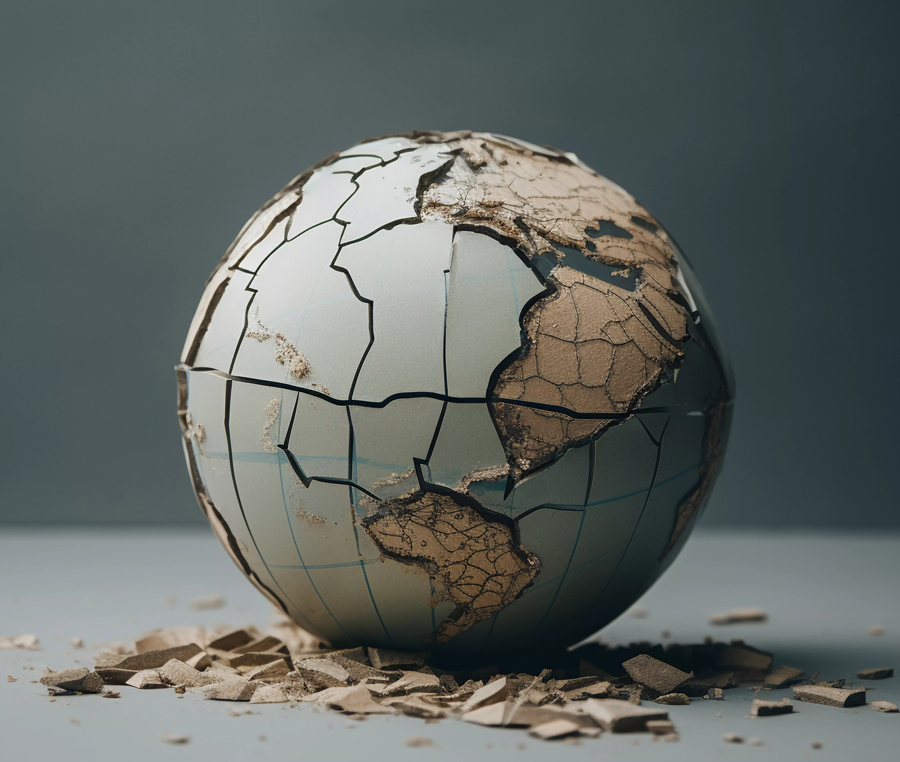As India, Indonesia and South Africa threaten to scrap a World Trade Organization (WTO) agreement on tariff-free digital trade, industry groups warn the three nations are at risk of scoring an economic “own goal”.
Since 1998, WTO members have unanimously agreed not to impose customs duties on electronic transmissions, effectively allowing e-commerce and digital trade transactions to take place tariff-free.
But at this week’s WTO ministerial conference in Abu Dhabi, a handful of influential members are threatening to block renewal of the agreement, arguing it deprives them of tax revenue and favours global technology giants.
A communication from Indian ministers submitted to the organisation this month argues that the digital and e-commerce landscape is “dominated by platforms from a few selected countries”.
These platforms “gain significant advantage with their ability to collect data when users access their services and are thus in a privileged position, giving them a significant competitive advantage”, it argues, adding this arrangement has “led to monopolistic trends”.
South Africa adds in a December communication it is concerned over “the deep digital and technological divide afflicting developing countries including least-developed countries”.
It says international tech firms have a “distinct unfair tax advantage over local competitors”, holding back domestic digital development and denting corporate tax revenue.
Indonesia estimates that developing countries missed out on US$56mn in tariff revenue between 2017 and 2020 from imports of 49 product types, such as music, video games and films, due to the arrangement.
Our World Is Not For Sale, a grouping of organisations opposed to corporate globalisation, argues tariff-free digital trade “is a tax evasion mechanism for big tech” that disproportionately harms the global south.
However, International Chamber of Commerce (ICC) secretary general John Denton says failing to renew the pact represents an “own goal” by those nations.
Speaking to GTR on the sidelines of last week’s GTR Mena event in Dubai, he said tariffs on e-commerce may appear “an easy hit” for governments seeking to raise budget revenue.
“The short easy answer, which suddenly gains currency and influences setting policy, is that we’ve been ripped off here and are going to put tariffs back,” he said.
“What they don’t understand is this will undermine their own industry. They risk the whole of e-commerce becoming not only more complicated, but more inefficient, leading to disputes and potentially a lack of investment.”
The better outcome, Denton argued, is to look at how to raise revenue from value added tax rather than tariffs.
In an open letter to WTO ministers, published ahead of this week’s summit, Denton adds: “There is no modern business today that does not depend on digital tools and digitally delivered services to manage and grow its operations.”
The agreement should “not only be renewed but be made permanent”, the letter says, adding: “Allowing it to lapse would be a historic setback for the WTO – and, moreover, the global real economy.”
Those arguments are echoed by the Center for Strategic and International Studies, a Washington DC-based think tank.
“With global cross-border data flows expected to reach US$11tn by 2025, the stakes are high,” it says in an analysis published on February 16.
“A new generation of digital trade barriers will be disruptive and costly and lead to a fragmentation of the global digital market, which would hurt SMEs the most, if not prevent many from engaging in e-commerce altogether.”
A study by London-based think tank the Centre for Economic Policy Research adds that trade in digitally delivered services is growing faster than trade in goods and other services, and accounted for 12% of all global trade in 2022.
It argues imported digitised products “are best taxed through existing domestic consumption taxes” rather than tariffs, concluding it is “in the interest of all countries that the WTO moratorium is extended”.
As of press time, discussions are still ongoing among WTO ministers on whether the agreement will be renewed.
“These plays often go down to the wire,” Denton says, noting there could be compromises made in exchange for benefits in other areas of trade.







